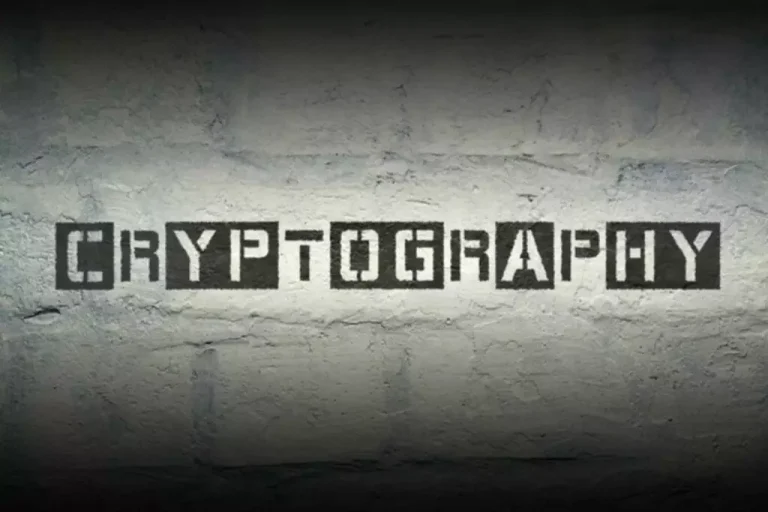Content
In today’s world, the prevailing financial ideology wields an overwhelming influence on the course of human lives and the health of our planet, posing a significant threat to the fabric of society and the environment. At the core of this ideology lies a series of unchallenged “absolute truths” that prioritize wealth accumulation, power, and unchecked economic growth, at regenerative finance the expense of communal well-being and ecological sustainability. The Voluntary Carbon Market (VCM), where ReFi is an important component as discussed earlier, is estimated to grow from $2 billion in 2021 to $50 billion by 2030. This growth indicates ReFi’s crucial role in funding projects that combat climate change and promote environmental sustainability.
Regenerative Finance is the Future of Web3
Blockchain is not a universal fix; even if suitable for a project, it can’t address underlying flaws. Regenerative Finance can open the door for you to build more sustainable and ecological businesses. However, blockchain and Initial coin offering Tokenization of RWAs add simplicity and data security to the concept because wealth distribution is one of the intrinsic values of DeFi (Decentralized Finance). Traditional financial markets are built on value extraction and people exploitation. Additionally, ReFi projects often have a strong community of users and developers who are invested in the success of the project.
Flowcarbon and Aptos Foundation Join Forces to Forge On-Chain Carbon Negative Path for Blockchain Transactions
- It’s a school of thought that incentivizes actions that increase systemic health and disincentivizes actions that lead to systemic deterioration.
- That means challenging the primacy of shareholderprofits,yes — but also rethinking who controls and benefits from businesses.
- They participate in funding renewable energy campaigns, organic farming, and social organizations.
- However, over 90% of us have heard a story about the tragedy of the commons and a world in need of a regenerative model of finance.
- Join us on this journey toward a regenerative financial future—one where finance acts as a steward to health, ecological harmony, and a shared and equitable prosperity, driving us towards a world where people.
ReFi promotes the expansion of community banks and credit unions that put their customers first. These banking institutions are https://www.xcritical.com/ more inclined to fund projects that address needs in the community. Although it may seem like a new buzzword, regenerative economy has roots that can be traced back to the early 20th century. Eventually, the concept grew from an idea to an actual framework for banking institutions. On a macro scale, cultural heritage is being destroyed by war, inequality and environmental degradation.

What Is Regenerative Finance (ReFi)?
One thing they all have incommon, though, is that you can’t fix a broken [name any system] with a brokenfinance system. That’s why regenerativefinance— a concept that’s been percolating at the edges of impact investing andsustainable business since at least 2015, when JohnFullerton laid out theprinciples of regenerativeeconomics — isemerging as an essential strategy. The very ecosystems that have sustained life for millennia hold the key to building economies that are resilient, regenerative, and sustainable.

Blockchain: A Catalyst for Smart City Transform…
ReFi isn’t strictly about maximizing profits; instead, it aims to create shared value and foster sustainable progress. It sees financial resources as more than just instruments for wealth creation; these are powerful tools that, when rightly directed, can help regenerate natural environments, uplift communities, and address systemic issues. Cultural and behavioral factors can also be barriers to the adoption of regenerative finance. Many financial professionals and investors may be more familiar with traditional financial practices and may be hesitant to embrace new and unfamiliar approaches. In addition, there may be a lack of awareness or understanding of the potential benefits of regenerative finance among the general public.
By aligning financial success with positive environmental and social outcomes, we help you create projects that benefit both the planet and society. In recent years, the advent of Web3 development and blockchain technology has revolutionized various sectors, from finance to art, healthcare, gaming and beyond. This new wave, characterized by decentralized systems, enhanced security, and transparency, is transforming how we think about and engage with digital solutions. Among the most prominent advancements are DeFi development (Decentralized Finance), which has democratized access to financial services, and the broader Web3 movement, which aims to create a more open, user-centric internet. Individuals can make investments directly in initiatives involving sustainability, renewable energy, and eco-friendly efforts through decentralized platforms, as well as blockchain technology. Web3 guarantees that funds go directly to environmentally beneficial projects and increases access to green investment opportunities by eliminating middlemen.
DEXes are accessible to anyone with an internet connection and a crypto wallet; there’s no need to go through lengthy verification processes to open an account. Grassroots Economics is a community currency initiative in Kenya that uses blockchain to support local economies. By creating community inclusion currencies (CICs), Grassroots Economics enables communities to trade goods and services locally, enhancing economic resilience.
A more urgent, forward-looking paradigm is called for — one that shifts the discourse from culpability and remediation to opportunity and value creation (handprints). Imperfect as it may be, ReFi is perhaps the most viable conceptual innovation at our disposal for mitigating ongoing environmental degradation. This blockchain architecture uses more than one data availability (DA) service to ensure data redundancy. Human Keys are cryptographic keys derived from what you are, what you know, or what you have. Following this introductory white paper, the series will delve into specific areas of finance, exploring not only the root causes of our current financial system’s disease, but also pave the way towards a genuine financial system reform. Decentralized finance aims to abolish the opaque, centralized financial infrastructure.
It strives to eliminate intermediaries, central authority, and barriers to financial services to give customers immediate access. Decentralization is a strategy used by ReFi to construct financial systems designed for regeneration. Being able to purchase carbon offset credits allows organisations that have traditionally high emissions to act immediately to reduce them via offsetting, rather than waiting for a gradual change in their operations which could take years. Ultimately, it is an attempt to redefine how firms and individuals relate to finance and develop a self-regenerating, sustainable system that doesn’t rely on scarcity or exploitation to create value.
They differentiate themselves from other DAOs by their mission-driven focus on positive socio-economic and environmental causes – for example, facilitating the removal of carbon from the atmosphere is one of the main Impact DAO business models. However, oftentimes the incentives for doing so are less than altruistic – ‘greenwashing’ has become prevalent. That is the act of emphasising the sustainability of a business’s products and services (even if they aren’t sustainable at all) to capitalise on consumer trends around environmentalism and gain a competitive advantage. The goals go beyond reducing net carbon emissions to zero, but to actually removing carbon from the atmosphere (hence the term ‘regenerative’) amongst other ecologically positive aims. The traditional financial markets have long been modelled on the extraction of value and exploitation of people – empowerment for the few whilst relying on the labour of many.
It provides lower-cost, flexible capital to communitydevelopment financialinstitutionsand other impact-focused lenders that support asset-building, high-quality jobsand self-determination for low-income communities. At least 80 percent of thesecommunity borrowers are led by people of color and women, and they have acentral role in Olamina’s governance and solution design. A new, five-year regenerative finance initiative called Funders forRegenerative Agriculture seeks to address thesechallenges by collaborating on systemic solutions that put people who stewardthe land first.
The growth of ReFi is driven by trends in understanding economic interdependence with nature, the fragility of extractive economic systems and supply chains, and using blockchain technology to enable natural regeneration for climate causes at scale. To understand a practical implementation of ReFi, we will explore the implementation of tokenized carbon credits, what problems these tokenized credits solve, and common-sense approaches to regulation. Regenerative Finance (ReFi) is emerging as a transformative approach within the financial sector, emphasizing the importance of sustainability and social equity. Unlike conventional financial systems that often prioritize short-term profits, ReFi seeks to create a holistic financial ecosystem that nurtures both environmental health and community well-being.
We recommend that you thoroughly familiarize yourself with the world of DeFi before participating in it and that you don’t deposit more funds than you could afford to lose. A broad range of safety checks have emerged as best practices, and large DeFi protocols have been securely offering users around the world financial services for several years now. Applications on a blockchain could be poorly designed or malicious — after all, access is open so anyone can create a decentralized application. Not many regulations are in place yet, so users of DeFi products need to carefully evaluate which services are safe to use and trustworthy.
How much and where large economic actors invest have critical implications for collective global security and, consequently, must become a central concern of global governance. Moreover, blockchain technology’s purported ability to catalyze innovative, participatory forms of governance embodies a paradox. The principle of decentralized, collaborative decision-making holds democratic appeal, but it simultaneously exposes the system to risks, such as fragmentation, diminished accountability, and potential subversion by technologically sophisticated actors.
Leave a Reply